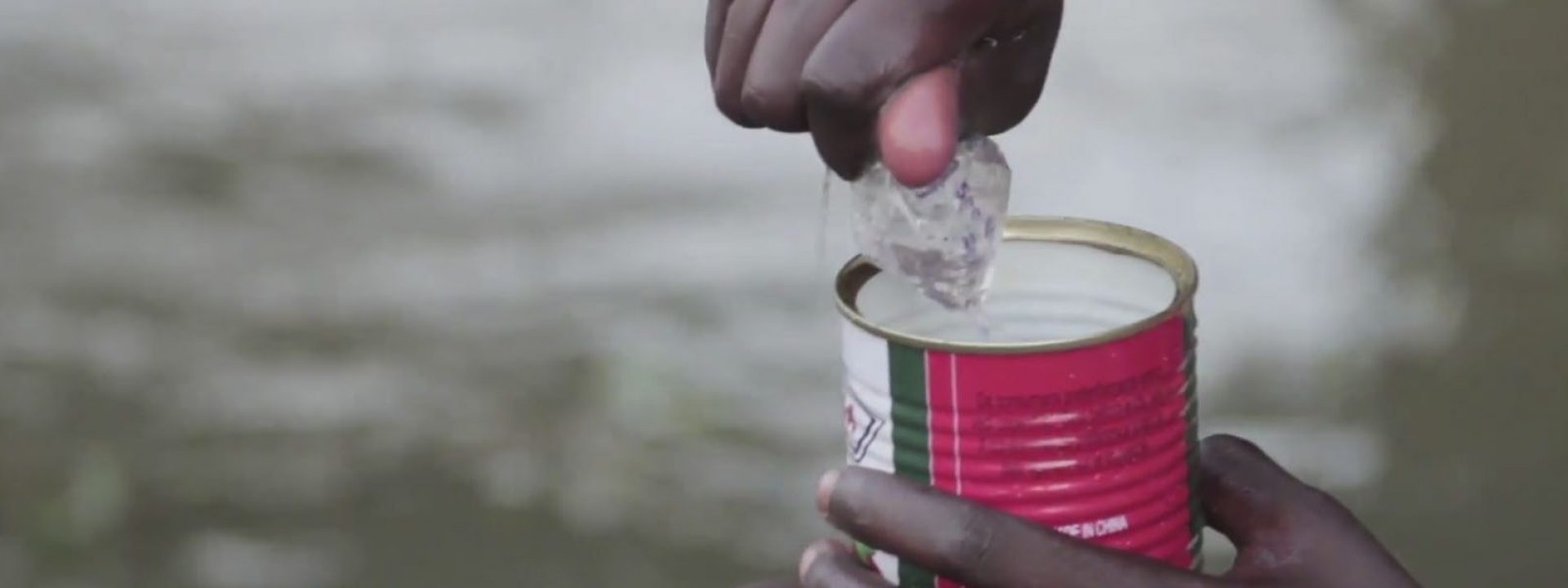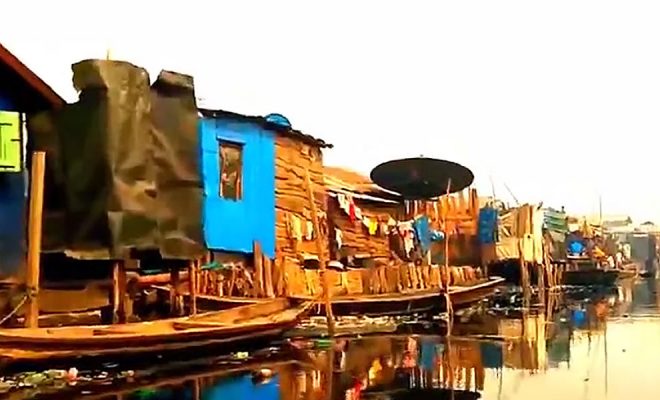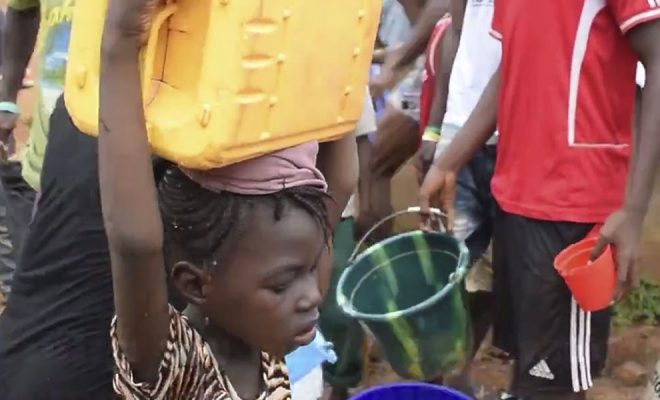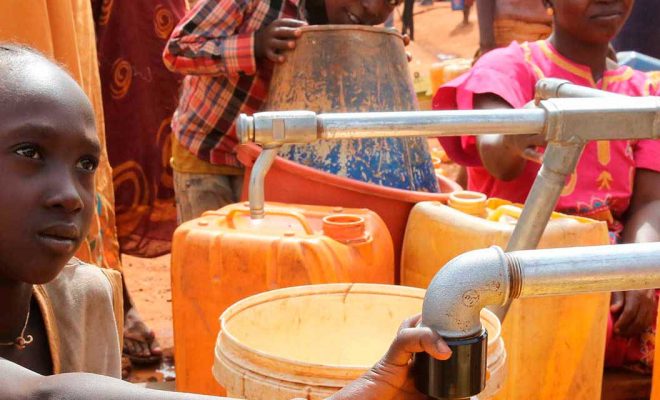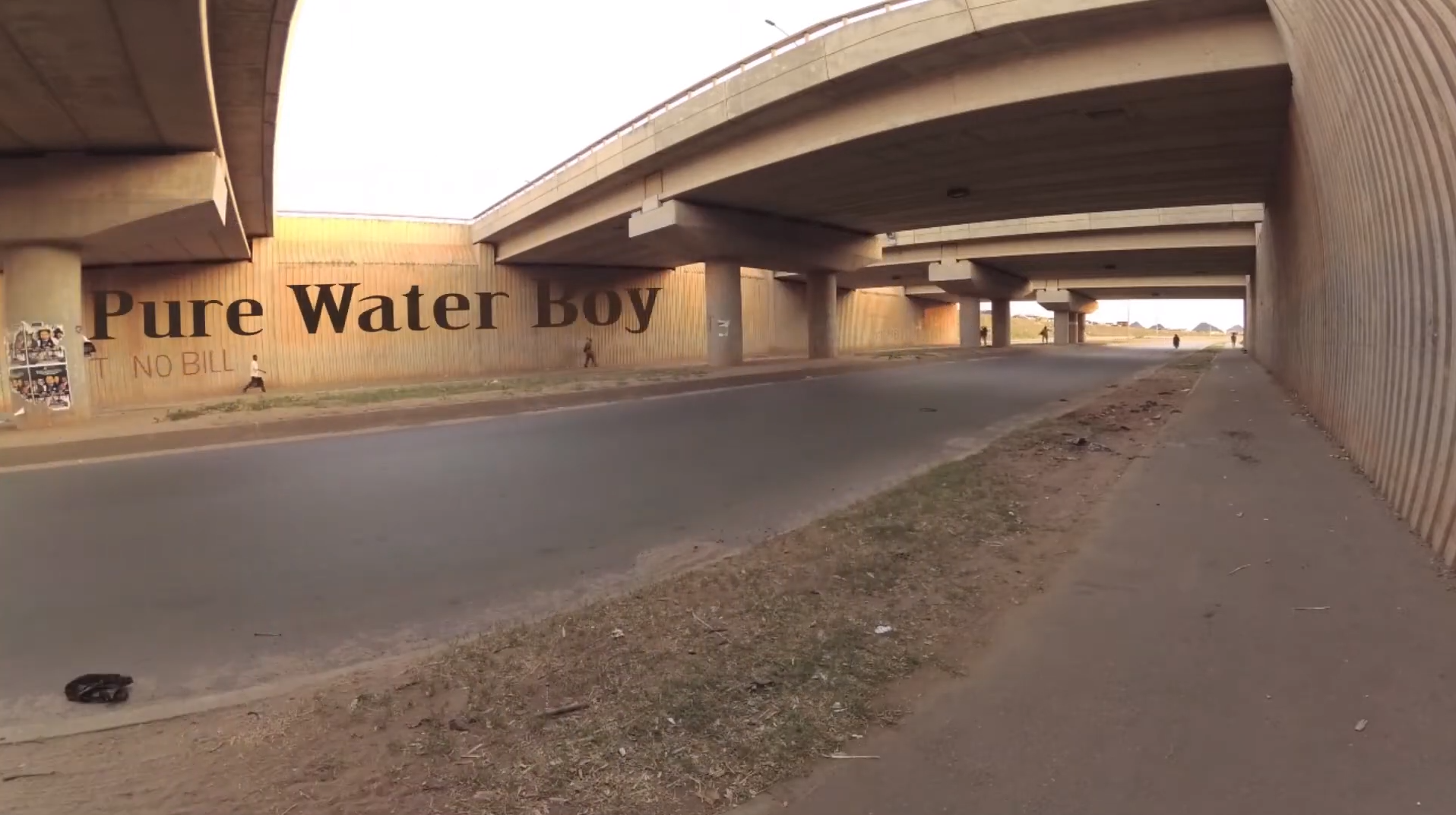
Pure Water Boy, by Piper (Nigeria), winner of the Audience Award of the We Art Water Film Festival 4.
In spite of being the largest economy in Africa, Nigeria has severe problems of access to water and sanitation. Throughout the country, almost four million people lack access to drinking water, sanitation and hygiene. In cities like Abuja, the capital, and Lagos, the most populated city in the country and the second most populated in Africa, there are serious supply shortages. One cause is the neglect of the facilities and distribution networks, which are among the most deteriorated in the world, but the main cause is an uncontrolled urban growth that surpasses the capacity to urbanize efficiently.
The case of Lagos is one of the most serious among cities in the world. The second city with the greatest demographic growth in the African continent and the seventh in the world faces an endemic water crisis that causes millions of people to live in unacceptable conditions. UN Water has denounced it, pointing out that the 21 million of residents in Lagos (2015) have difficulties in finding drinking water and adequate sanitation and it estimates that only one in 10 people has access to water supplied by the State. This situation has worsened after years of poor management and high rates of political corruption.
Droughts and especially the armed conflict unleashed by the terrorist group Boko Haram have caused an extremely serious situation in the north of the country and an unprecedented migratory movement: more than 1.5 million people are classified by UNHCR as “internally displaced”, while another 800,000 live in hard-to-reach areas, 79 percent of these Nigerians being women and children. All of them have a very difficult access to water and sanitation.
The migratory pressure aggravates the problem in the slums of the large cities in the south. Like Bala, the protagonist of the short film, one in three children cannot go to school (there are around 10.5 million children out of school in Nigeria) and UNICEF estimates that some 368,000 children are at risk of acute malnutrition in 2019.
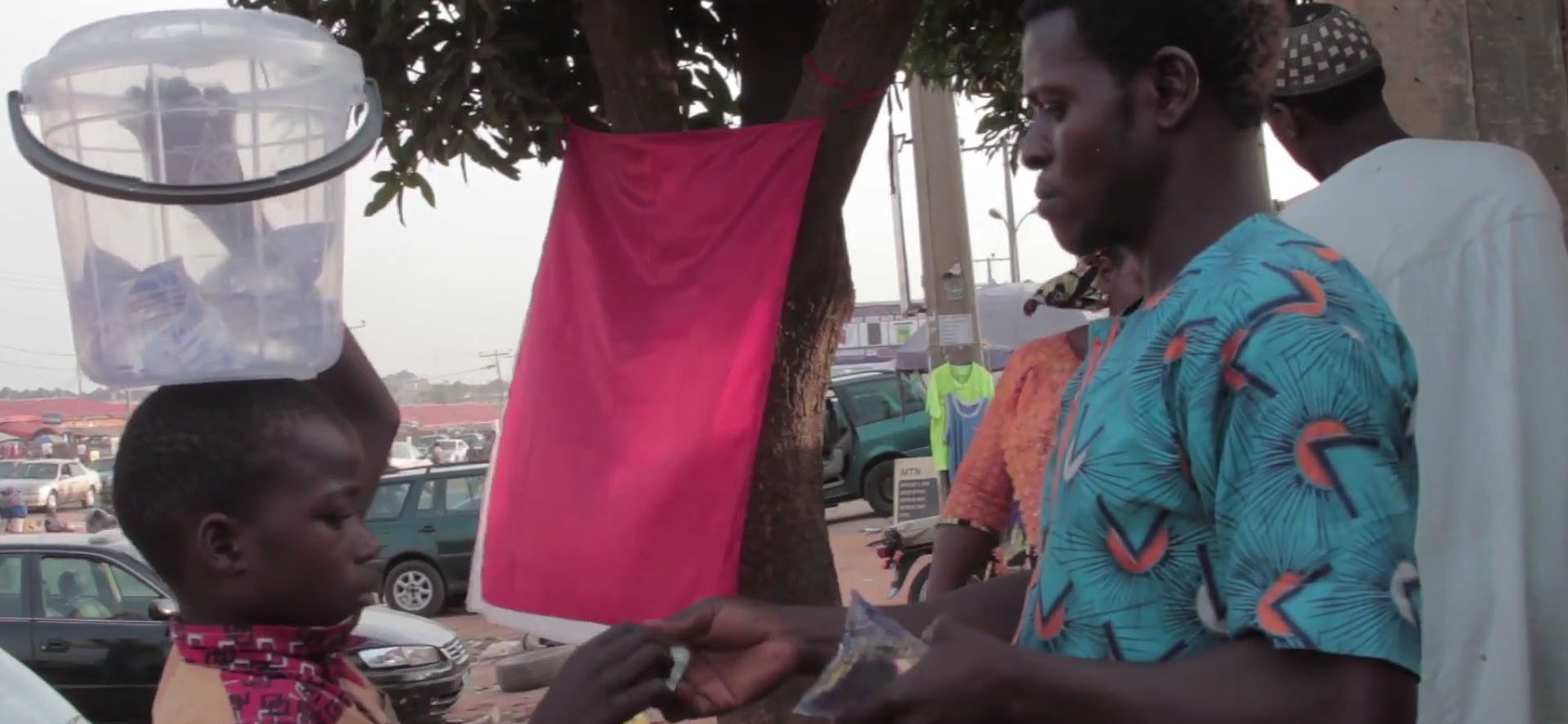
But Bala and the homeless children in large cities can consider themselves fortunate. Their fellow peasants that live in the northeast regions suffer the violence unleashed by Boko Haram. 570 children died and 311 were mutilated in terrorist attacks in 2017. Girls bear the brunt. The terrorist group has left thousands of them in a terrible situation. After being systematically kidnapped and raped, those who manage to be released suffer contempt from their own communities and are abandoned.
Violence and forced migrations prevent the Government from taking control of the quality of the water and sanitation. Pollution extends to most of the country’s rivers as they cross cities, causing diseases like cholera or diarrhea especially among children under 15. According to UNICEF, they are three times more likely to die from intestinal infections than the average child in Africa.
Bala’s last reflection in the short film is a denunciation of what happens in many sub-Saharan cities: “They say that water is life. But what water?”


